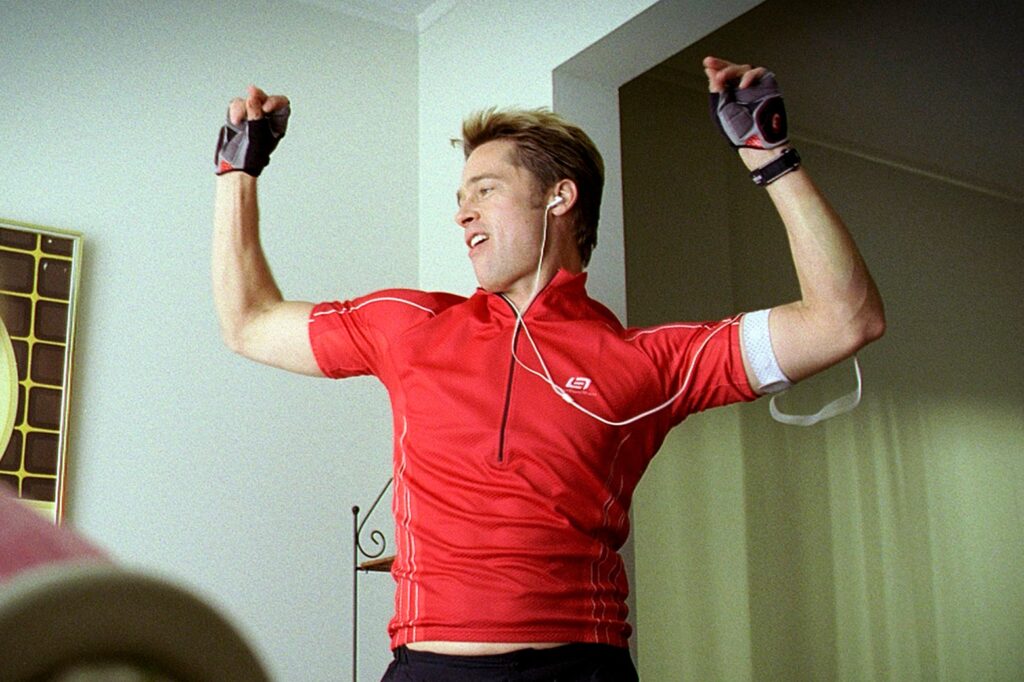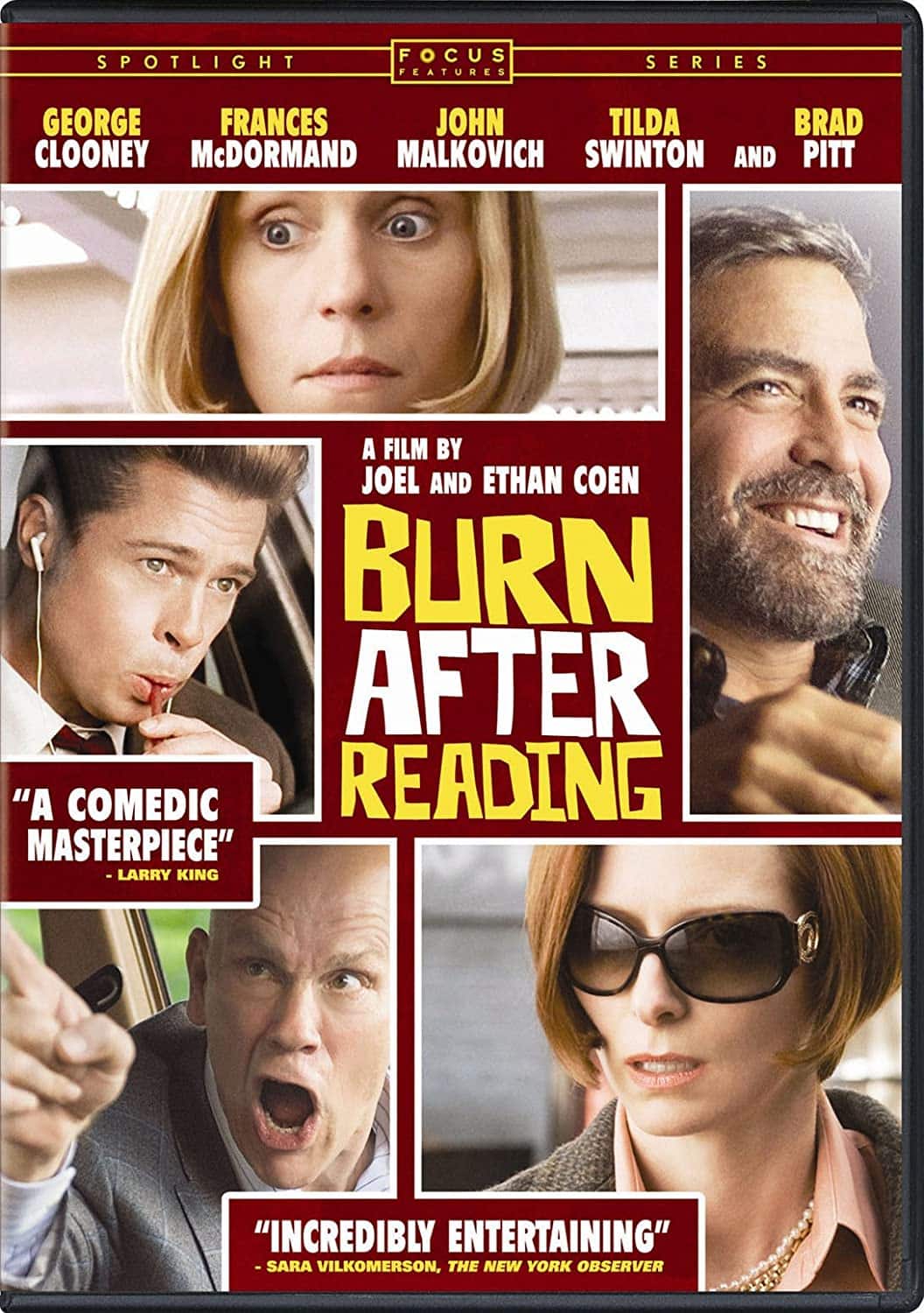This is one of my very favourite movies. It stars John Malkovitch as a retiring CIA analyst who – through no fault of his own – endures spectacular idiocy by two wannabe spies.
There are three parallel sets of thoughts about how the world of politics works: Some people think politics is House of Cards (evil people conspiring to take over the world), some people think politics is West Wing (idealistic people changing the world for good) and anyone who has ever worked in the world of politics knows that it is really Veep and The Thick of It (a clown show of rampant incompetence). I strongly believe politics is Veep and The Thick of It, and Burn After Reading precedes those two TV series as showing political operators as cluelessly self-important.
When I worked in the online gambling industry, a fellow manager spoke about people who thought that they were ten-out-of-ten performers, when they were only four-out-of-ten performers. That disconnect is described by the Dunning-Kruger effect* which theorises that low-performing people do not realise that they are low-performing. In effect, it argues that one part of gaining skill is self-criticism.

The wannabe spies in this movie have a complete lack of self-criticism, and thus, suffer from a bad case of that Dunning-Kruger effect. Everything that they describe is feasible from their very limited point-of-view. From their limited vantage point, they have constructed a somewhat plausible conspiracy theory. The disconnect between the knowledge of the wannabe spies, and the other characters, and the audience, creates many funny situations – funny situations which leave the characters in amused bewilderment**.
Time and time again, the movie creates beautiful threads where different characters know radically different things to each other. The unrequited love of the gym is funny, and the conclusion of the movie is outstandingly apt.
The movie, in many ways, speaks to one of my common default prejudices: that stupidity is far more common in the universe than evil. It’s a comedy, but also a tragedy, for the harm caused to peoples lives from the stupidity of random people.
Kyle Smith of National Review summarises it excellently in the wake of the recent clown show of American politics:
After Watergate, Washington movies were built around a notion that we’d all been too naïve about how much corruption there was in Washington. Burn After Reading is one of the few films that take account of how much more sophisticated about politics we’ve become since the Nixon era. Today we know that bumbling rather than villainy can explain a lot. There may have been corruption behind the Mueller investigation, but there need not have been. Tens of millions of dollars of public money, thousands of hours of gumshoeing, and untold quantities of punditry can all be set on fire by some combination of stupidity and vanity. Where else could so many resources get thrown at chasing down a rumor based on a nonexistent pee tape, while everyone involved pompously told themselves they were saving the Republic?
The League of Morons
*Which itself might not be real; I don’t know
**I used to think that this feeling was called bemusement. But it isn’t.

